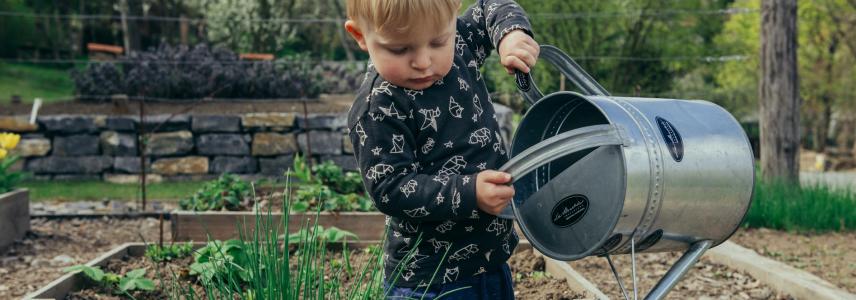Why responsible gardening is important

Sustainability is becoming more important in the European market for home decoration and home textiles. Buyer and consumer values as well as the European Green Deal force the garden industry to take responsibility now, too.
Responsible gardens are the future
The 2023 exhibition and book Garden Futures: Designing With Nature suggest that if the planet is a garden, we are all gardeners. That means we have a collective duty to cultivate, tend, and use our planet responsibly. This trend was also noticeable at this year’s edition of the trade fair for the garden industry, spoga+gafa, as the theme was Responsible Gardens. The fair explored how the garden industry can take greater responsibility for people and the planet and how it can inspire consumers to do the same.
Figure 1: ‘Garden Futures: Designing with Nature’ at the Vitra Design Museum
Source: Vitra Design Museum
How can consumers contribute?
The challenges to tend to the planet responsibly are enormous and need more than just the at-home gardener’s effort. But the spogo + gafa fair suggests that the garden can be an opportunity. It is a place to try out what should be done on a much larger scale. This even applies to limited outdoor spaces such as balconies. An estimated 82% of Europeans have a home with a garden or balcony, showing home gardeners can make a real difference.
For example, the smallest bee hotel, or a birdhouse or feeder in a garden can already help spread the species. In France, 80% of people with gardens use such products to help protect the environment and increase biodiversity. Almost half of all French gardeners have plants, shelters, or insect hotels in their gardens to attract pollinators.
Composting is another market trend, with the worm composter as a new variant. Worms in containers mulch organic material into compost – even indoors.
How can the garden industry inspire consumers?
The garden industry takes its responsibility by inspiring home gardeners. It shows them they can take out decking tiles and fill the open space with plants, collect rainwater, or cover their roofs with sedum.
The industry can also help inspire children to grow vegetables and enjoy gardening. For example, kids’ gardening tools can help children learn to grow gardens in a fun way and develop a love for nature.
Moving towards sustainable materials
Although the garden industry is not a frontrunner in sustainability, developments are promising. Brands are moving away from plastics and offer more responsible options. These include:
- Recycled fishnets
- Ropes; and
- Ocean plastics
And also alternative materials, such as:
- Coffee grounds
- Bamboo; and
- Coconut fibres.
The new EU Deforestation Regulation will also stimulate brands to use more sustainable sources other than wood. Other efforts include:
- Energy-efficient manufacturing;
- Minimal and/or sustainable packaging; and
- Repairability/recyclability.
Together, these initiatives help the garden industry to move towards greater responsibility.
Learn more
For more information on environmental responsibility in the sector, read our study on sustainability in home decoration and home textiles and our tips to go green. For product-specific information, see our studies on garden furniture and plant pots.
Globally Cool B.V. wrote this news article for CBI in collaboration with GO! GoodOpportunity and Remco Kemper.
Stay informed
To stay informed on the latest developments in HDHT, subscribe to our newsletter.